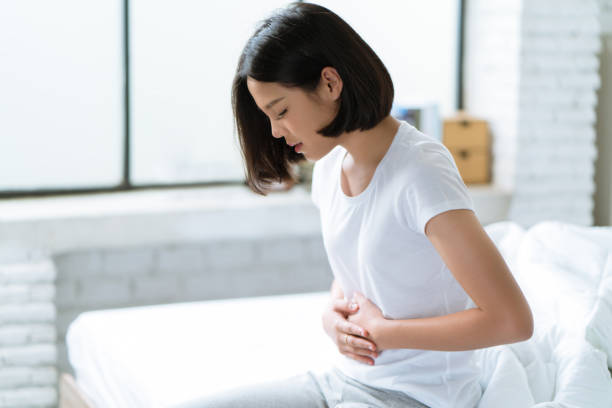PCOS is a disorder that affects women and can cause a wide range of symptoms. While the cause of PCOS is unknown, some experts believe that it may be an autoimmune disease. In this blog post, we will answer the question is PCOS an autoimmune disease or not. We will also discuss the treatments available for PCOS and how to manage the condition.
What Is A PCOS Disease?
PCOS, or polycystic ovary syndrome, is a disorder that affects women of childbearing age. It is characterized by the presence of multiple cysts on the ovaries, irregular periods, and high levels of certain hormones. PCOS can also cause other symptoms, such as weight gain, infertility, and acne.
While the exact cause of PCOS is unknown, it is believed to be related to an imbalance of hormones. In particular, women with PCOS often have higher than normal levels of testosterone. This hormone imbalance can lead to the development of cysts on the ovaries and other symptoms associated with PCOS.

4 Types Of PCOS
There are four types of PCOS, each with its own set of symptoms.
1. The most common type of PCOS is inflammatory PCOS. This type is characterized by the presence of inflammation in the ovaries. Women with this type of PCOS may have irregular periods, fertility problems, and other symptoms.
2. Another type of PCOS is known as insulin-resistant PCOS. This form of the disorder is characterized by insulin resistance and high levels of insulin. Insulin resistance can lead to weight gain, diabetes, and other health problems.
3. A third type of PCOS is known as post-pill PCOS. This form of the disorder develops after a woman stops taking birth control pills. It is characterized by the presence of multiple cysts on the ovaries, irregular periods, and high levels of testosterone.
4. The fourth and final type of PCOS is known as adrenal PCOS. This form of the disorder is characterized by the presence of multiple cysts on the ovaries, irregular periods, and high levels of testosterone. It is also associated with the adrenal gland disorders Cushing’s syndrome and Addison’s disease.
Is PCOS An Autoimmune Disease?
There is no known cure for PCOS, but there are treatments that can help manage the symptoms. While the exact cause of PCOS is unknown, some experts believe that it may be an autoimmune disease. Autoimmune diseases are conditions in which the body’s immune system attacks healthy cells, tissues, and organs. In most cases, the exact cause of an autoimmune disease is unknown. However, some experts believe that a combination of genetic and environmental factors may play a role in the development of these disorders.
There is some evidence to suggest that women with PCOS may have an autoimmune disease called anti-Mullerian hormone (AMH) autoimmunity, therefore it can be labeled as an autoimmune disorder. AMH is a hormone that helps to regulate the development of eggs in the ovaries. Women with this condition have antibodies that attack AMH, which can lead to problems with egg development and ovulation.
There are some similarities between PCOS and other autoimmune diseases, such as Graves’ disease and Hashimoto’s disease. Both of these conditions are characterized by the presence of multiple cysts on the ovaries, irregular periods, and high levels of hormones. In addition, both conditions are more common in women who have a family history of autoimmune diseases.
What Are The Treatment Options For PCOS?
There is no cure for PCOS, but there are treatments available that can help manage the symptoms. Some of the most common treatment options for PCOS include:
- Birth control pills: Birth control pills can help to regulate hormone levels and reduce the risk of developing cysts on the ovaries.
- Weight loss: Losing weight can help to improve hormone levels and reduce the severity of symptoms.
- Exercise: Exercise can help to improve insulin sensitivity and reduce inflammation.
- Supplements: Various supplements, such as metformin and inositol, can help to improve hormone levels and reduce the risk of developing diabetes.
- Metformin: Metformin is a medication often used to treat type 2 diabetes, but it can also be effective in managing PCOS. It works by helping to regulate insulin levels, which can impact hormone levels and ovulation.
- Diet: Maintaining a healthy weight through diet can help reduce the symptoms of PCOS. Eating a balanced diet can also help improve fertility.
- Stress management: Managing stress levels can be helpful in reducing the symptoms of PCOS. Stress can impact hormone levels, so finding ways to reduce stress can help manage the condition.
- Anti-androgen medications: These medications can help block the effects of testosterone and reduce the symptoms of PCOS.
- Fertility treatments: Fertility treatments, such as in-vitro fertilization (IVF), may be recommended for women with PCOS who want to become pregnant.
If you have PCOS, it is important to speak to your doctor about the best treatment options for you.

Women With PCOS Have An Increased Risk Of Developing Thyroiditis
Women with PCOS may be at an increased risk of developing Hashimoto’s thyroiditis, an autoimmune disease that causes inflammation of the thyroid gland. It is the most common cause of hypothyroidism or an underactive thyroid.
Symptoms of thyroiditis can include fatigue, weight gain, hair loss, and depression. If left untreated, Hashimoto’s thyroiditis can lead to serious health problems, such as heart disease and infertility.
There is no cure for Hashimoto’s thyroiditis, but treatment can help to manage the symptoms. Treatment typically involves taking thyroid hormone replacement medication.
What It’s Like Living With PCOS
Living with PCOS can be challenging, but there are ways to manage the condition and live a healthy life.
Here are some things to keep in mind if you have PCOS:
- You’re not alone: PCOS is a very common condition, affecting up to 10% of women of childbearing age.
- It’s important to see a medical expert: If you think you may have PCOS, it’s important to see a doctor so that you can get a diagnosis and start treatment.
- There is no cure, but there are treatments available: There is no cure for PCOS, but there are treatments available that can help manage the symptoms.
- PCOS can impact your mental health: Women with PCOS may be at an increased risk of developing anxiety and depression. It’s important to talk to your doctor about any mental health concerns you may have. PCOS can also be a lonely condition, so it’s important to find support from others who understand what you’re going through.
Conclusion
PCOS is a disorder that affects women and can cause a wide range of symptoms. While the cause of PCOS is unknown, some experts believe that it may be an autoimmune disease. There is no cure for PCOS, but there are treatments available that can help manage the symptoms. If you have PCOS, it is important to speak to your doctor about the best treatment options for you.
